Our Team
Our team consists of a number of academics and knowledge users who have years of experience conducting research and working with people who use substances.
There are academics and knowledge users from across Atlantic Canada, as well as academics from Ontario, and British Columbia. There are also a number of collaborators on the project from across Atlantic Canada, Quebec, Ontario, and British Columbia.
The knowledge users on this study work with community-based organizations across Atlantic Canada to support people who use substances. To learn more about their organization, please click on the knowledge user's name and follow the links to the organization's website and/or social media pages.
Principal Investigator
Lois Jackson, Dalhousie University
Lois Jackson, PhD, is a Professor of Health Promotion at Dalhousie University (Nova Scotia, Canada). For over 20 years, she has conducted research with marginalized populations with a particular focus on people who use substances. Much of her community-based research centres on understanding individuals’ experiences accessing health services including harm reduction services. Her work draws attention to specific challenges of access for those living outside of large urban centres. She has led a number of nationally-funded studies and has presented and published widely internationally, nationally and locally. |
 |
Paula Martin, Direction 180
Paula Martin is a Registered Social Worker and Program Manager at Direction 180, a low threshold opioid treatment program in Halifax, Nova Scotia. She is passionate about community-based harm reduction initiatives and supporting people who use substances to improve their overall health and social well-being. To learn more about Direction 180, visit their website or their Facebook page. |
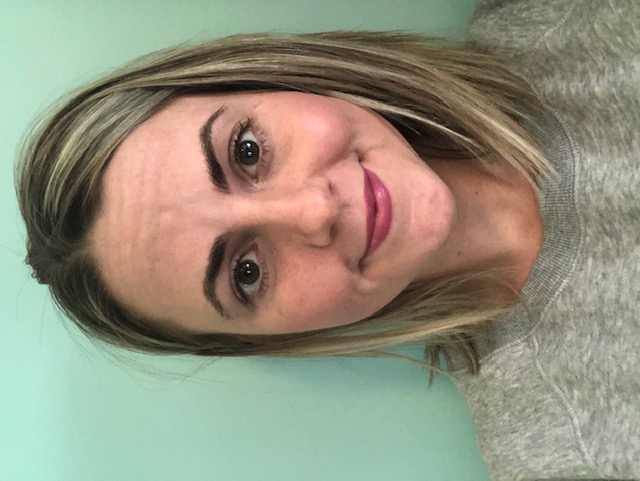 |
Co-Investigators (Academic)
Jane Buxton, University of British Columbia
Jane Buxton, MBBS, FRCPC, is a Professor in the School of Population and Public Health at the University of British Columbia (Vancouver, British Columbia, Canada). Dr. Buxton co-chairs the BC Harm Reduction committee; in 2011 she developed the Drug Overdose and Alert Partnership; and in 2012 led the introduction of the BC take-home-naloxone program. She is engaged in quantitative, qualitative and participatory research with marginalized populations ensuring people who use drugs are involved in developing priorities for research, policy and harm reduction program evaluation. |
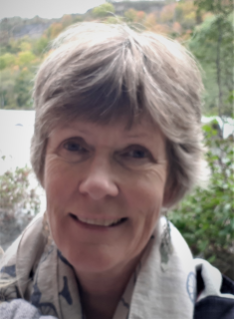 |
Anik Dubé, Université de Moncton
Anik Dubé, PhD, is a Professor in the School of Nursing at Université de Moncton (New Brunswick, Canada). Dr. Dubé’s research interests include health promotion, disease prevention, health inequities and community health development. |
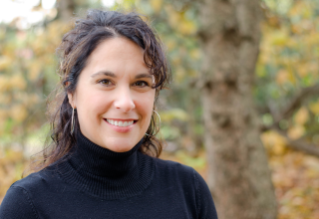 |
Jacqueline Gahagan, Mount Saint Vincent University
| Jacqueline Gahagan, PhD, is the Associate Vice-President, Research at Mount Saint Vincent University. They serve as the Co-Director of the Atlantic Interdisciplinary Research Network for Social and Behavioural Aspects of HIV and HCV (airn.ca), as a Founding Fellow of the MacEachen Institute for Public Policy and Governance and as an Affiliate Scientist with the Nova Scotia Health Authority. They have been involved in HIV/AIDS advocacy, activism and research for over two decades. |  |
Niki Kiepek, Dalhousie University
Niki Kiepek, PhD, is an Assistant Professor in the School of Occupational Therapy at Dalhousie University (Halifax, Nova Scotia, Canada). Dr. Kiepek's research explores substance use by professionals and she uses patient-oriented research approaches to understand intravenous drug use among inpatients. |
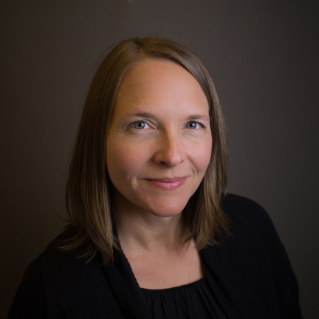 |
Lynne Leonard, University of Ottawa
Lynne Leonard, PhD, is a social epidemiologist and Associate Professor and Research Scientist in the School of Epidemiology and Public Health at the University of Ottawa. Dr Leonard is a member of many national, provincial and local committees and advisory boards focusing on policy and programme development to reduce the harm associated with injection drug use and serves as a member and Chair on a range of national and provincial Scientific Review Boards including the Canadian Institutes of Health Research. Dr. Leonard's research interests include the social determinants of health, community-based research, and HIV prevention at the national, provincial and local level.
Fiona Martin, Dalhousie University
Fiona Martin, PhD, is an Associate Professor in the Department of Sociology and Social Anthropology, with cross appointments to Gender and Women’s Studies and Law, Justice and Society at Dalhousie University (Halifax, Nova Scotia, Canada). Dr. Martin’s current research focuses on the trajectories of parents who use opioids through the health and social care system in different jurisdictional contexts and the social, spacial and policy arrangements that have bearing on pregnant women’s access to methadone in Nova Scotia, specifically. |
 |
Jo-Ann MacDonald, University of Prince Edward Island
| Jo-Ann MacDonald, PhD, is an Associate Professor with the Faculty of Nursing at the University of PEI (Charlottetown, Prince Edward Island, Canada). Dr. MacDonald’s research focuses on prevention and behavioural issues related to blood borne pathogens (HIV and Hepatitis C) and sexually transmitted infections in marginalized populations. | 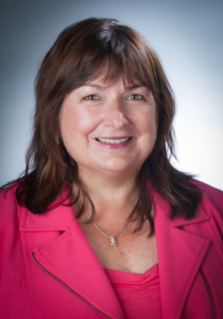 |
Jen Smith, Eastern Health
| Jen Smith, MSW, RSW, is an Addictions Counselor with Eastern Health and is currently contracted within the Newfoundland and Labrador Department of Justice. She received her MSW from UBC (2009), focusing on mental health and addiction, and is a Registered Social Worker in NL. With a wide range of experiences across the country, Jen has worked with grassroots organizations and Government systems. Most recently she has been a sessional instructor with the Memorial University School of Social Work, and has been involved with multiple research projects on mental health and addictions. | 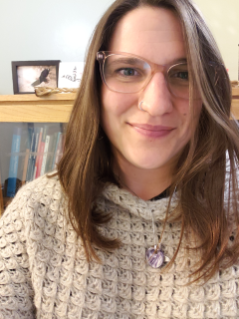 |
Carol Strike, University of Toronto
Carol Strike, PhD, is a Professor at the Dalla Lana School of Public Health, University of Toronto (Toronto, Ontario, Canada). Dr. Strike is also an executive member of the Canadian Association of HIV Researchers. Her research centers on improving services for people who use drugs and other marginalized communities. |
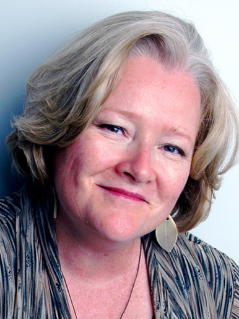 |
Co-Investigators (Knowledge Users)
Diane Bailey, Mainline Needle Exchange
Diane Bailey is the Director of Mainline Needle Exchange (Halifax, NS) and has been working with Mainline since 1992. She has also managed, co-managed and developed over 30 funded projects. Diane has been called the heart and soul of Mainline, a leader, a counsellor, an advocate, a manager and a friend which she contributes to her 20+ years of street experience, 3 years methadone treatment and 28 years recovery. To learn more about Mainline Needle Exchange, you can visit their website or their Facebook page. |
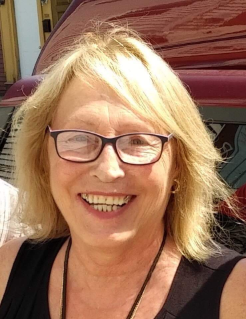 |
Josie Baker, PEERS Alliance
Josie Baker is the Executive Director of PEERS Alliance (Charlottetown, PEI). PEERS Alliance engages, supports, and educates all Islanders on issues related to sexual health and harm reduction in the context of drug use. To learn more about PEERS Alliance, you can visit their website or their Facebook page. |
Julie Dingwell, Avenue B
Julie Dingwell is the Executive Director of Avenue B (Saint John, NB), and a founding member and chair of the Sex-Trade Action Committee. Julie is dedicated to meaningfully involving people who use substances in small Canadian communities. She is also interested in policy development around addictions. She provides front-line experience of the many barriers around access to harm reduction. To learn more about Avenue B, you can visit their website or Facebook page. |
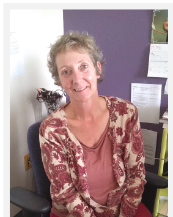 |
Christine Porter, Ally Centre of Cape Breton
Christine Porter is the Executive Director of the Ally Centre of Cape Breton. The Ally Centre of Cape Breton is a harm-reduction, community based organization dedicated to providing prevention, support and education services to people living with or at risk of blood borne pathogens. The goal of the centre is to create supportive spaces for those most at risk. For more information about the Ally Centre, visit their website or their Facebok page. |
Natasha Touesnard, Canadian Association of People Who Use Drugs (CAPUD)
Natasha Touesnard, along with several local current/former drug users together formed the first drug user group in the Atlantic provinces. Halifax Area Network of Drug Using People (HANDUP) was created through their collective vision, and she held the role of Project Coordinator. Currently, Ms. Touesnard is the executive director of CAPUD. Previously she was the full-time site coordinator of the Open Door Clinic, Family practice and Opioid Agonist Treatment. She holds a number of volunteer positions where she is able to share her expertise and advocate for people who use substances. These roles include board member of the Hepatitis Outreach Society of Nova Scotia (HepNS), and a member of the Canadian delegation partaking in the United Nations (UN) Commission on Narcotics (CND) 2019 in Vienna, Austria. To learn more about CAPUD, visit their website or their Facebook page. |
Debby Warren, ENSEMBLE
Debby Warren is the Executive Director of ENSEMBLE (Moncton, NB). ENSEMBLE aims to alleviate complex social challenges. Through empowerment and hope, they work with partners to build a community that fosters diversity, inclusion and health. To learn more about ENSEMBLE, visit their website or Facebook page. |
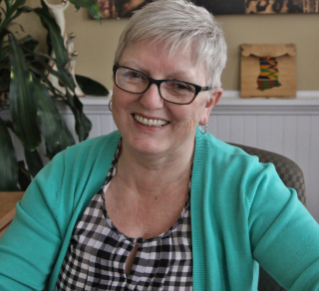 |
Gerard Yetman, AIDS Committee of Newfoundland and Labrador
Gerard Yetman is the Executive Director and one of the founding members of the AIDS Committee of Newfoundland and Labrador. Gerard worked as program manager with Health Canada’s AIDS Community Action Program and the Manager of National Programs with the Canadian AIDS Society. Gerard has served on provincial, regional and national Boards of Directors including CATIE, CTAC, CWGHR, and CAS. To learn more about the AIDS Committee of Newfoundland and Labrador, you can visit their website or their Facebook page. |
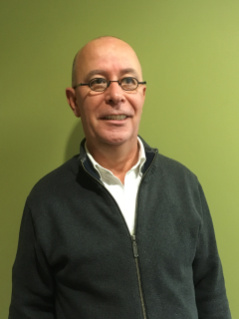 |
Research Staff
Holly Mathias
Holly Mathias, MA, is a PhD student and Vanier Scholar in the School of Public Health at the University of Alberta (Edmonton, Alberta, Canada). She is a part-time research coordinator for the Atlantic COAST Study. Her research centres on unpaid support for people who use substances in rural and remote Canadian communities, and how the provision of such support may impact the physical, mental, social and financial wellbeing of caregivers. Prior to beginning doctoral studies, Holly was the full-time research coordinator for the Atlantic COAST Study and a sessional instructor in the School of Health and Human Performance at Dalhousie University (Halifax, Nova Scotia, Canada). |
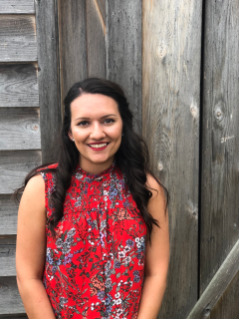 |
